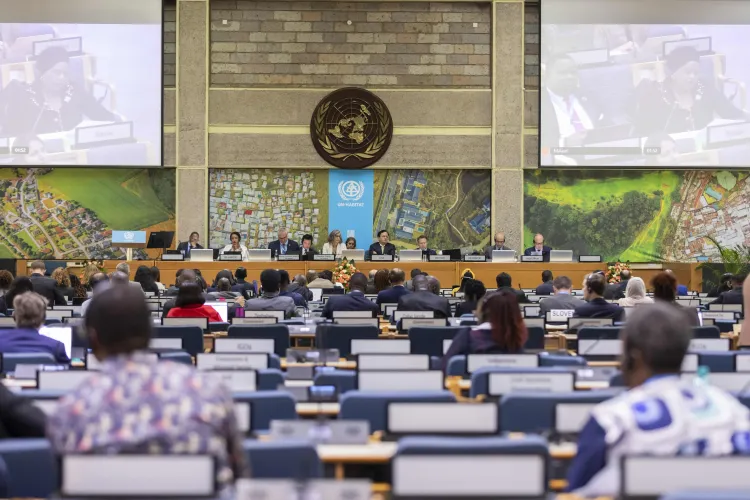How is UN-Habitat Upholding Sustainable Urbanization Amid Global Challenges?

Synopsis
Key Takeaways
- UN-Habitat emphasizes the need for inclusive urban development.
- Addressing the climate crisis is crucial for urban resilience.
- Innovative financing is essential for sustainable urbanization.
- Executive Director Anaclaudia Rossbach highlights the need for global cooperation.
- Over 100 countries benefit from UN-Habitat's initiatives.
Nairobi, May 26 (NationPress) The drive towards the establishment of smart, resilient, and inclusive urban environments is progressing steadily, despite the hurdles presented by the climate crisis, geopolitical tensions, and a global economic downturn, a senior official from the United Nations Human Settlements Programme (UN-Habitat) stated on Monday.
Anaclaudia Rossbach, the Executive Director of UN-Habitat, emphasized that sustainable urbanization is essential for fostering a more equitable, cohesive, and environmentally friendly future for humanity.
“Our mission to enable inclusive, safe, resilient, and sustainable urbanization has become increasingly recognized and urgent,” Rossbach remarked during the opening session of the third Open-Ended Meeting of the Committee of Permanent Representatives (OECPR-3) in Nairobi, the capital of Kenya.
The OECPR, which runs from Monday to Wednesday, serves as a precursor to the resumed second session of the UN-Habitat Assembly scheduled for Thursday, focusing on themes that will shape the future of cities and their residents.
During this three-day OECPR gathering, delegates—including senior policymakers, diplomats, civil society representatives, industry leaders, and academics—will evaluate progress towards realizing a new urban agenda that prioritizes universal access to essential services such as housing, clean water, and sanitation.
Furthermore, Rossbach highlighted that discussions will address the impact of global warming on cities, which has intensified issues of displacement, loss, and damage, particularly in the Global South.
Utilizing proactive leadership, innovative policies, technologies, and advancements will be crucial for achieving the eleventh Sustainable Development Goal (SDG 11), which focuses on sustainable cities and communities, Rossbach noted, as reported by Xinhua news agency. She added that the comprehensive execution of UN-Habitat’s strategic plan for 2026-2029, which emphasizes housing, land, and basic services, will accelerate urban renewal and address social and environmental challenges faced by city residents.
According to Rossbach, the current global liquidity crisis, coupled with swift geopolitical shifts, necessitates innovative financing strategies to support efforts aimed at achieving the sustainable urban agenda.
She asserted that reforms in the multilateral system are essential, promoting meritocracy, harnessing technology for enhanced efficiency, and improving governance to ensure a green and resilient future for rapidly expanding cities.
In the past year, UN-Habitat has made significant strides across over 100 countries by expanding access to clean water, adequate housing, enhancing climate resilience, and facilitating recovery in conflict-affected areas, Rossbach stated.
“These initiatives reflect our dedication to inclusive and sustainable urban transformation, ensuring that no one is left behind,” she concluded.









